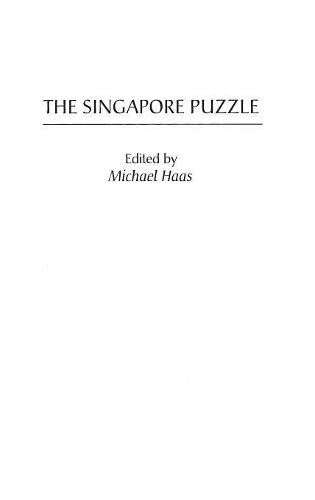
The Singapore Puzzle
(Hardback)
Publishing Details
The Singapore Puzzle
By (Author) Michael Haas
Bloomsbury Publishing PLC
Praeger Publishers Inc
30th January 1999
United States
Classifications
Tertiary Education
Non Fiction
Asian history
959.5705
Physical Properties
Hardback
216
Description
Although Singapore's struggle for independence was led by politicians promising democracy, the leaders have sought to maintain power by reversing democratic practices and subverting democratic institutions. The case for Singapore's government today is based on economic prosperity that has raised the per capita income of the country into the top ten states of the world. The case against Singapore's government is that the economic policies have been copied from Hong Kong, the rule of law has become rule by political appointees, the free press has been muzzled, and the foreign policy is narcissistic in the extreme. The reason for the paradox of increasing dictatorship as the economy improves is the establishment of a mass society, that is, a society with few intervening groups or institutions between the public and the government. Although the government blames mass society on rapid social change, the authors in this book identify myriad instances when the government itself destroyed intervening social institutions and, thus, intensified mass society. This is an important study for scholars, researchers, and policymakers involved with Asia and the developing world in general.
Reviews
.,."useful to scholars and students of Asia and of development as a warning against easy generalizations about the links between development and democracy."-Perspectives & Political Science
...useful to scholars and students of Asia and of development as a warning against easy generalizations about the links between development and democracy.-Perspectives & Political Science
..."useful to scholars and students of Asia and of development as a warning against easy generalizations about the links between development and democracy."-Perspectives & Political Science
Author Bio
MICHAEL HAAS, Professor of Political Science at the Univeristy of Hawaii at Manoa for 34 years, took early retirement in 1998 to devote full time to writing and research./e Since his first trip to Asia in 1971, he has visited nearly every country in the region, serving in temporary appointments in Bangkok, Manila, and Singapore. He is the author of more than 200 publications, including 20 books.
